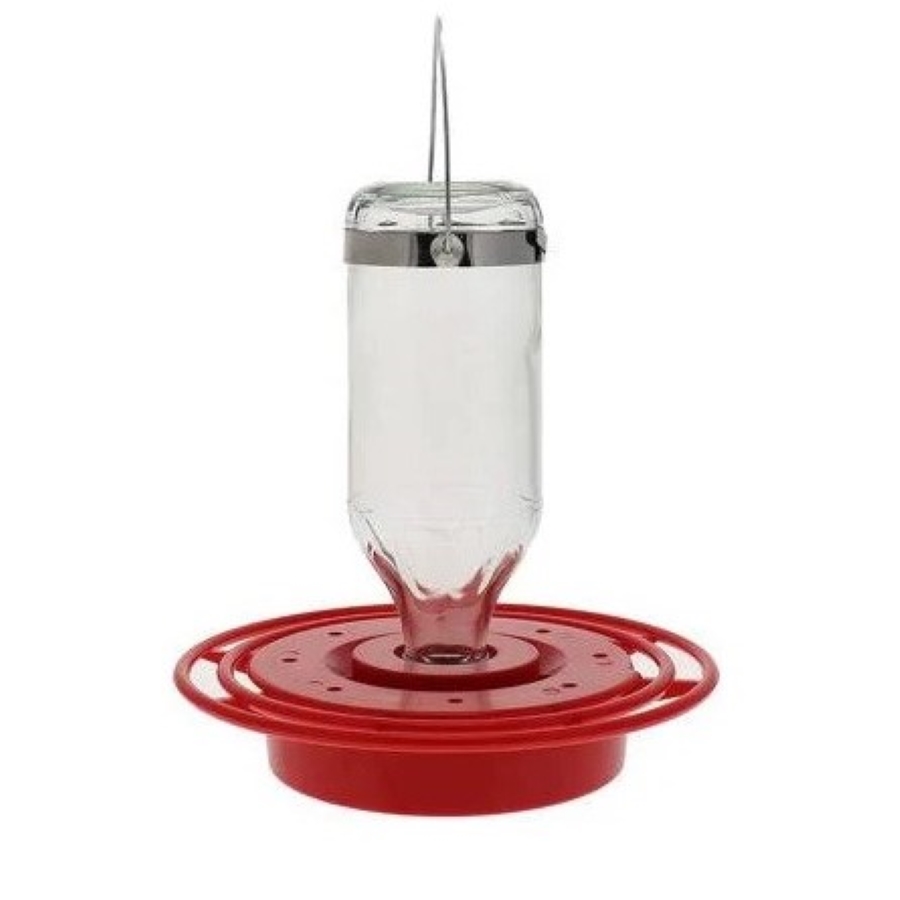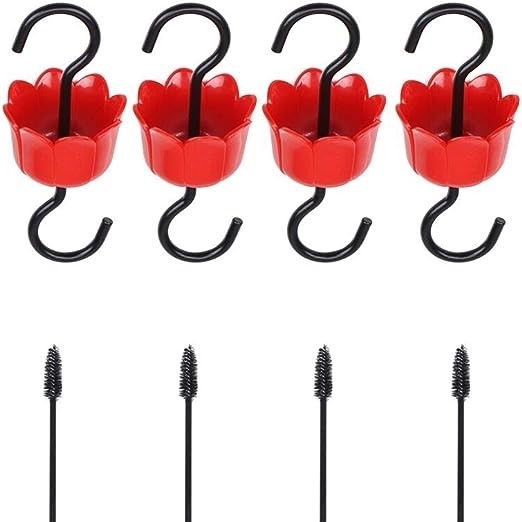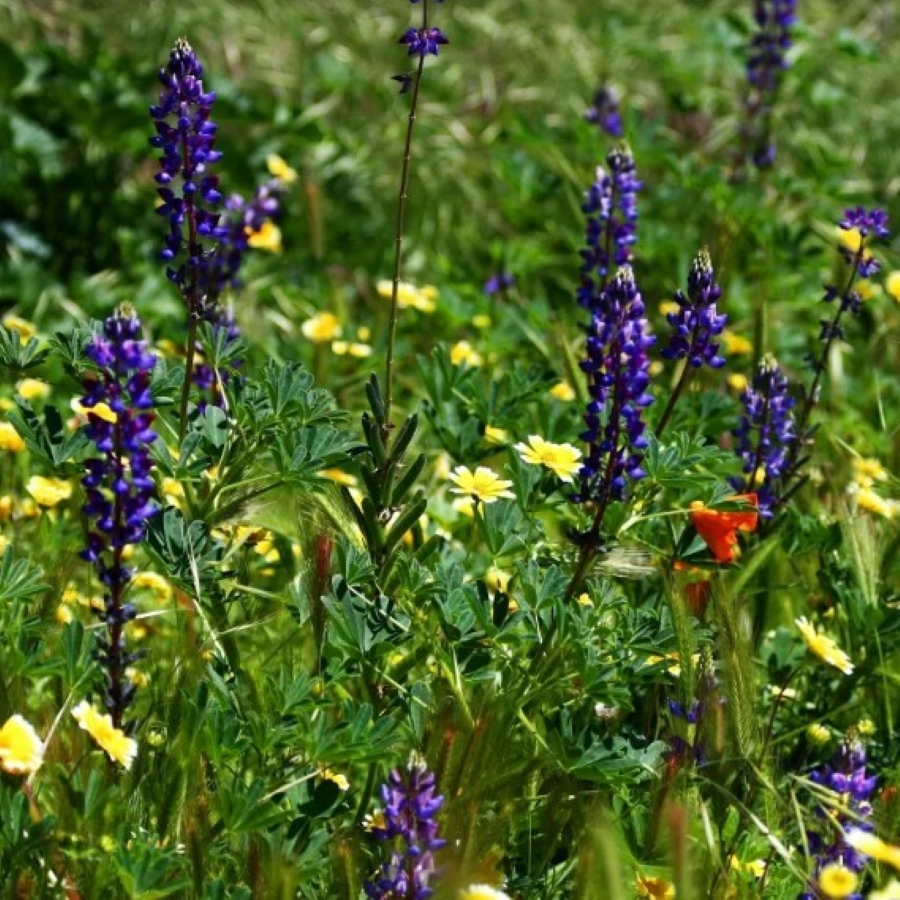How do I keep bees off my hummingbird feeder? 5 simple tricks to try
We love bees, but there's a time and a place for these helpful insects, and on your hummingbird feeder is not it
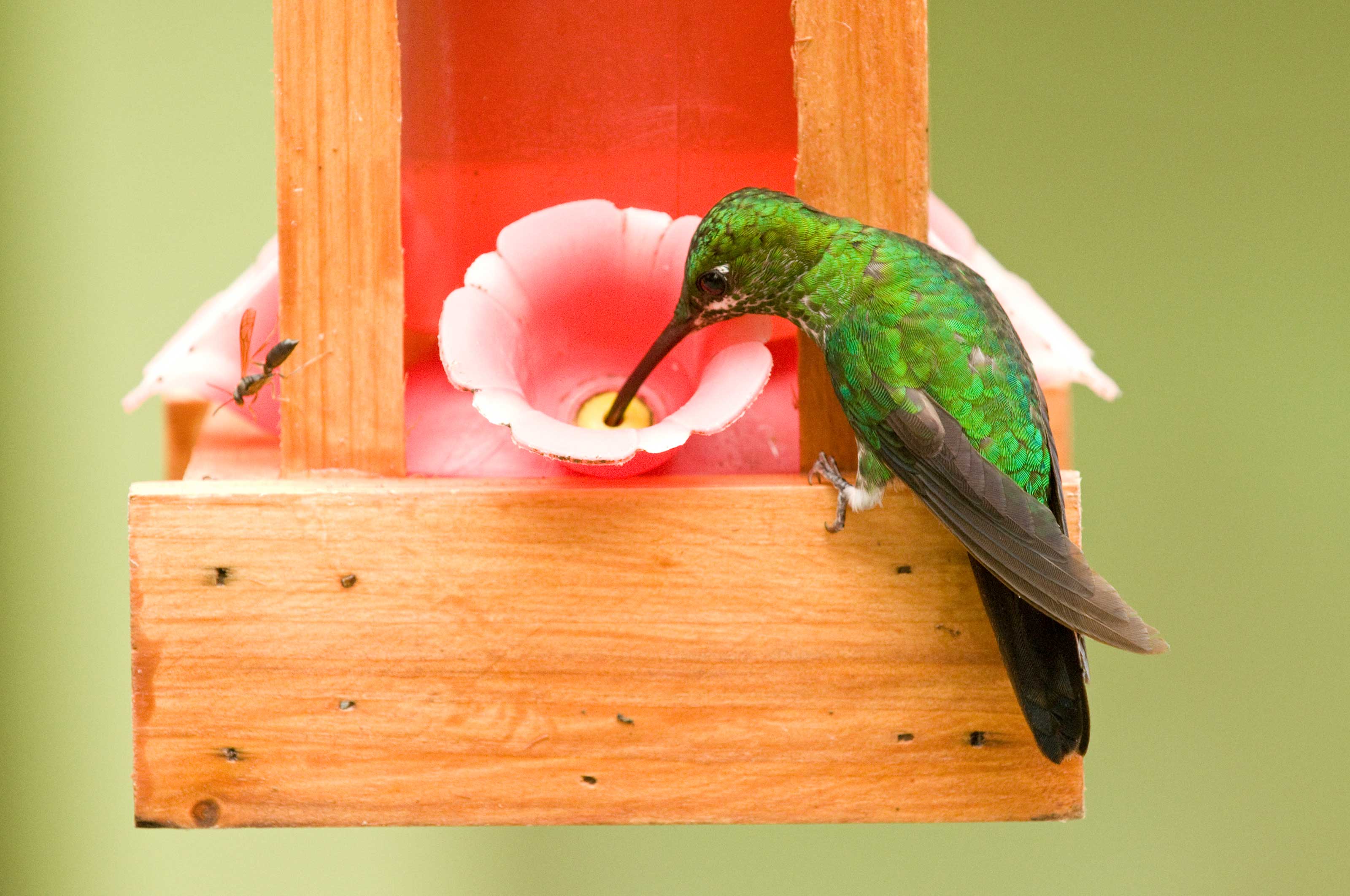

Hummingbirds are one of the most beautiful birds to watch, it is no wonder you would want to entice them for your backyard with a feeder. However, you might have noticed that your hummingbird feeder is also attracting bees. Whilst the small little inspects are incredibly important to our whole ecosystem, their presence around a feeder is less than ideal.
There are ways, however, to discourage bees from your feeder so that you can enjoy the birds on their own. We should be encouraging bees in alternative ways, such as through wildflower gardens, which are great for encouraging biodiversity. But in this way, they can be persuaded away from the hummingbirds.
We sought out experts with the top tips for keeping bees away from your hummingbird feeders, and they are certainly more effective than saying buzz off.
Why are bees attracted to hummingbird feeders?
Firstly and most importantly we must address this question to get to the root cause of the problem.
'Bees, much like hummingbirds, are attracted to the sweet nectar in bird
feeders,' says the founder of the gardening blog Urban Organic Yield, Lindsey Hyland.
'As they are foraging for food, they are naturally drawn to high-energy sugar sources. Bird feeder nectar, with its high sugar content, proves to be an irresistible lure for them,' she explains.
This can be bothersome for birdwatchers, particularly as bees are more than capable of attacking hummingbirds. Although there are many ways we can deter bees from the site and encourage them elsewhere.
1. Keep it in the shade
The location of your feeder will have a large impact on whether or not it will attract bees. Choosing a location unappealing to bees will discourage them.
'Keeping your feeder in a shady spot can help to deter them,' says expert beekeeper Charlotte Wiggins. 'Bees are less active in the shade and will be less inclined to venture into the dark for food.'
It is also useful to relocate your feeder regularly. Like most animals, bees become reliant on a specific food source and will return regularly when they learn where your feeder is. Moving your feeder every few days can keep them guessing.
2. Keep it away from pollinators
This tip also relies on location. Placing your feeder amongst other attractive elements to bees is not a wise choice. Try to avoid other sources of food and particular pollinator favorites.
'Keeping your feeder away from sources of water and nectar, such as trees and flowers is another way of discouring bees from your hummingbird feeders,' says Lindsey. These conditions are not always possible to find, it is just about finding a way to make your feeder as unattractive to bees as possible and providing a better alternative elsewhere.
3. Buy a bee guard
If you are an avid bird watcher it might be worth investing in a bee guard, or nectar guard like this one from Amazon to keep bees from being able to feed on the hummingbird food. 'Nectar guards are small screens or disks that fit over the feeding ports of hummingbird feeders,' explains Charlotte. 'They make the holes too small for bees to get through, but they allow hummingbirds to feed.'
If your garden is a haven for bees, this might be your best solution.
4. Create bee deterrents
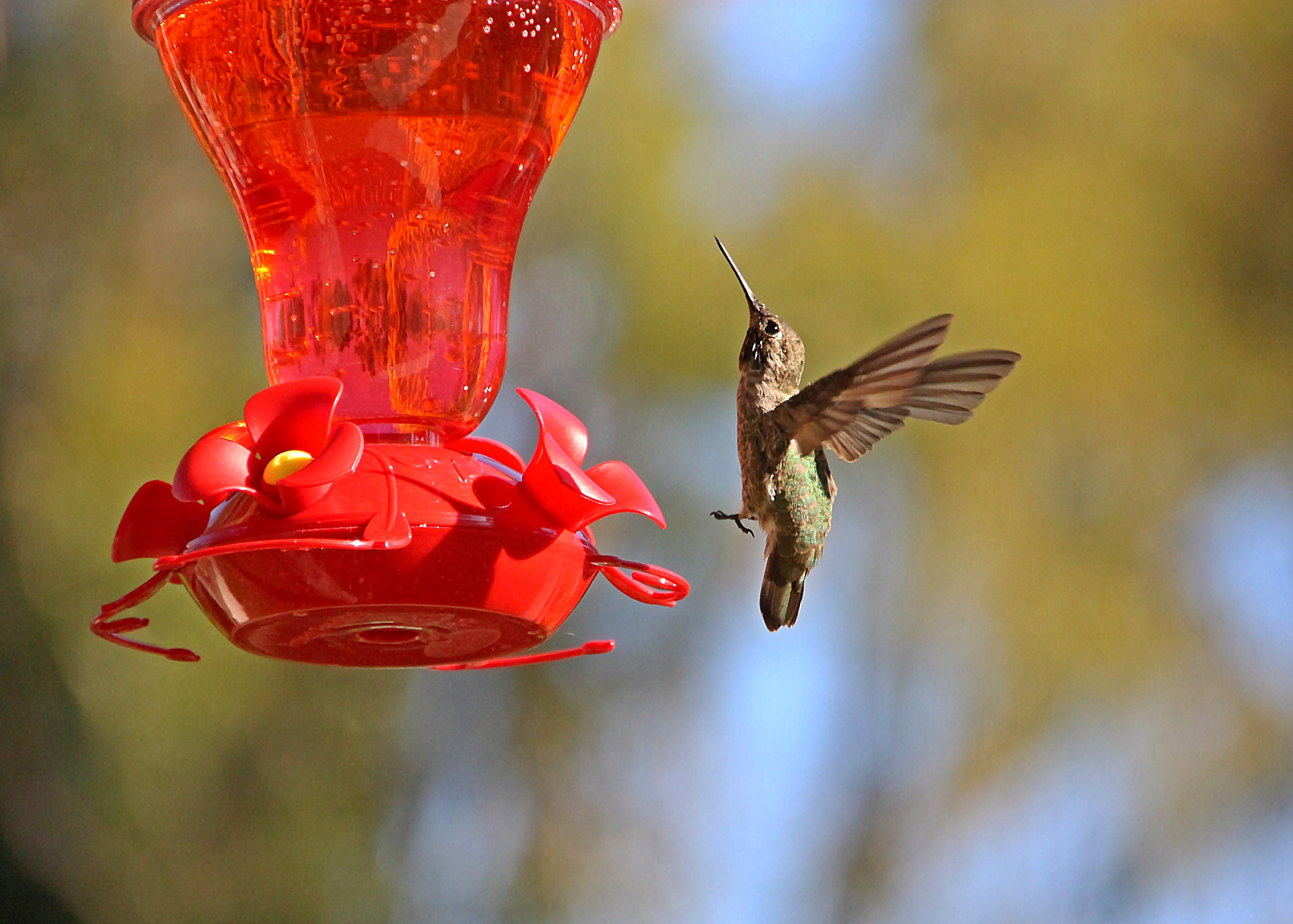
There are certain things bees dislike, and combining these items can create a successful deterrent without causing them any harm. However, gardening tips to attract wildlife will be appealing to both hummingbirds and bees.
'Place brightly colored ribbons or shiny reflectors, near your bird feeders as a bee deterrent,' says Lyndsey. 'These objects create movement and light that will discourage bees from lingering.'
All the more, hummingbirds are attracted to bright colors, especially red, so this vibrant display will also help with enticing the birds.
5. Create a space for bees
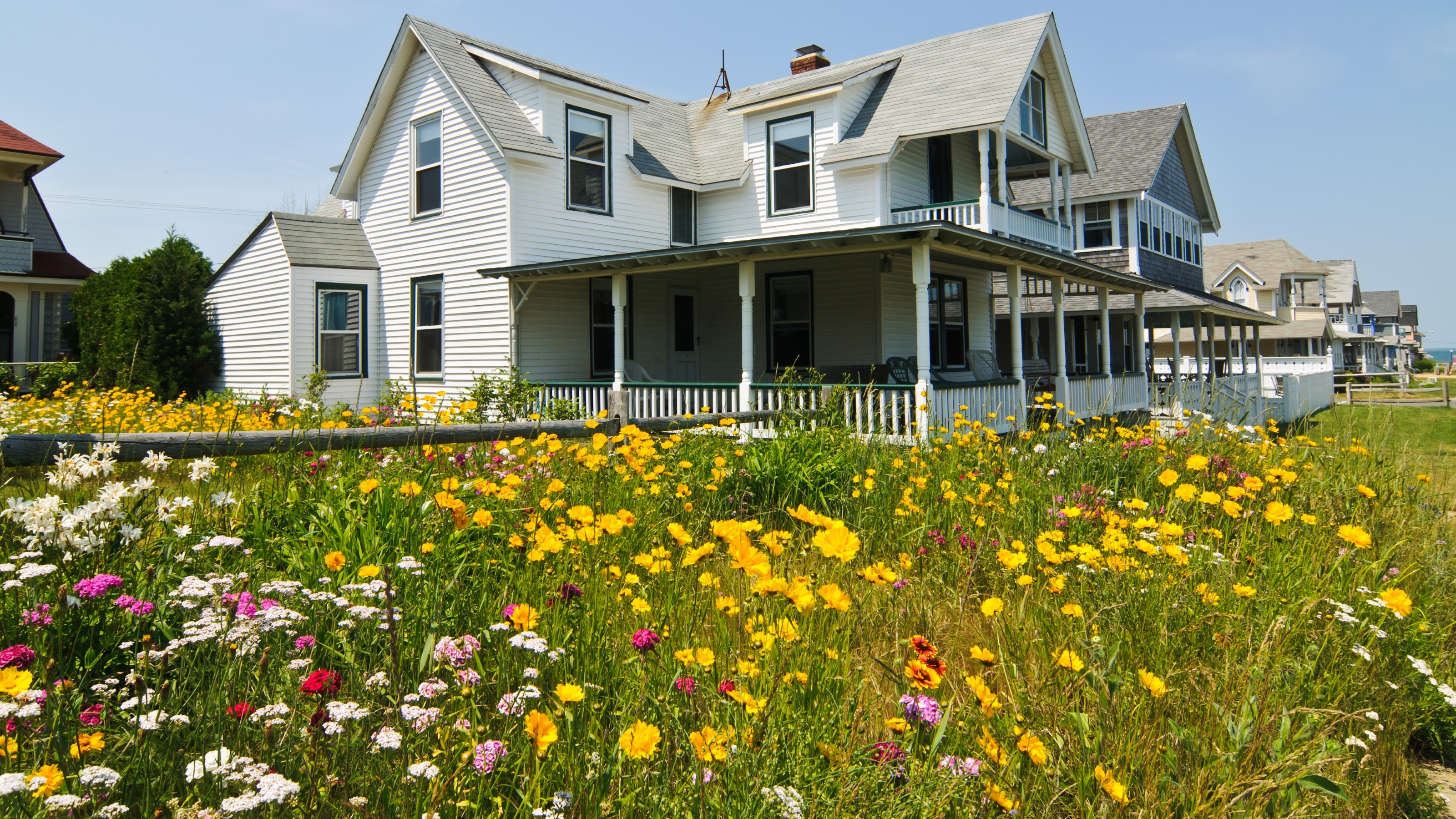
This last tip is to create an environment for bees that is more attractive than the hummingbird feeder. This is also a really important thing to do to encourage biodiversity and strengthen the ecosystem.
Bees need sustenance, and with so much urbanization happening it is important we replenish this where we can. Creating areas that provide a reliable source of food will not only keep the bees healthy, but they will also keep returning and thus stay away from your feeder.
You can even create a feeder area in an urban yard. 'Set up a small, shallow dish filled with a sugar water solution (one part sugar, four parts water),' says Lindsey, 'This will attract the bees, providing them with the nourishment they need while helping to keep them away from your hummingbird feeders.'
Alternatively, you can choose bee-friendly plants. 'Cultivate a garden with plants that are attractive to bees, such as trumpet vine, salvia, and bee balm,' says plant expert, Zahid Adnan from The Plant Bible. There are so many beautiful flowers to attract bees, you are spoilt for choice.
These simple tricks will help you to keep the bees safe and happy, whilst enjoying your hummingbird feeder.
Be The First To Know
The Livingetc newsletters are your inside source for what’s shaping interiors now - and what’s next. Discover trend forecasts, smart style ideas, and curated shopping inspiration that brings design to life. Subscribe today and stay ahead of the curve.

Formerly a news writer for Livingetc, Amy completed an MA in Magazine Journalism at City, University of London, and has experience writing for Women’s lifestyle publications across arts, culture, and beauty. She has a particular love for the minimalist aesthetic mixed with mid-century furniture, especially combining unique vintage finds with more modern pieces. Her previous work in luxury jewellery has given her a keen eye for beautiful things and clever design, that plays into her love of interiors. As a result, Amy will often be heard justifying homeware purchases as 'an investment', wise words to live by.
-
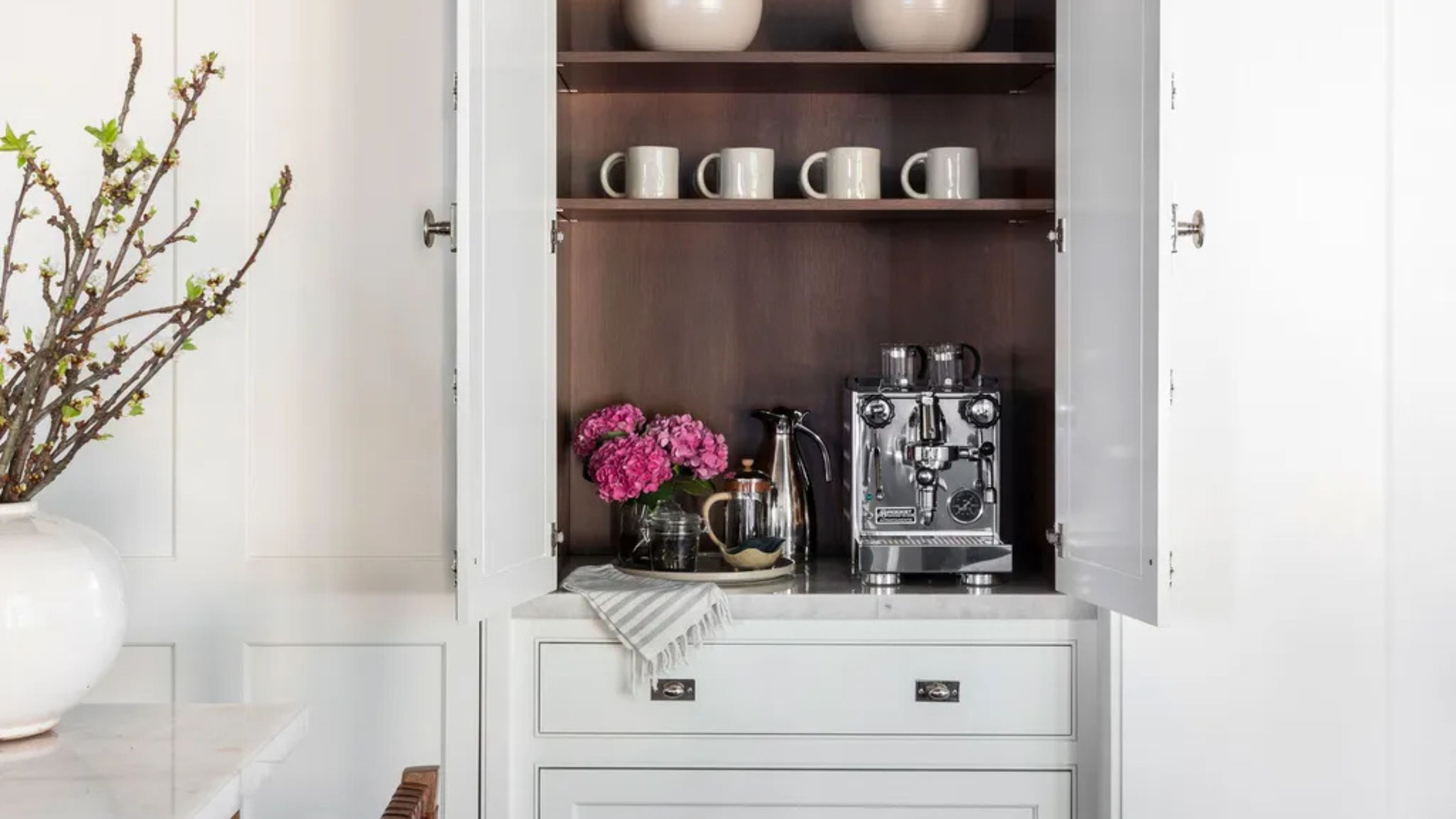 Turns Out the Coolest New Café is Actually In Your Kitchen — Here's How to Steal the Style of TikTok's Latest Trend
Turns Out the Coolest New Café is Actually In Your Kitchen — Here's How to Steal the Style of TikTok's Latest TrendGoodbye, over-priced lattes. Hello, home-brewed coffee with friends. TikTok's 'Home Cafe' trend brings stylish cafe culture into the comfort of your own home
By Devin Toolen Published
-
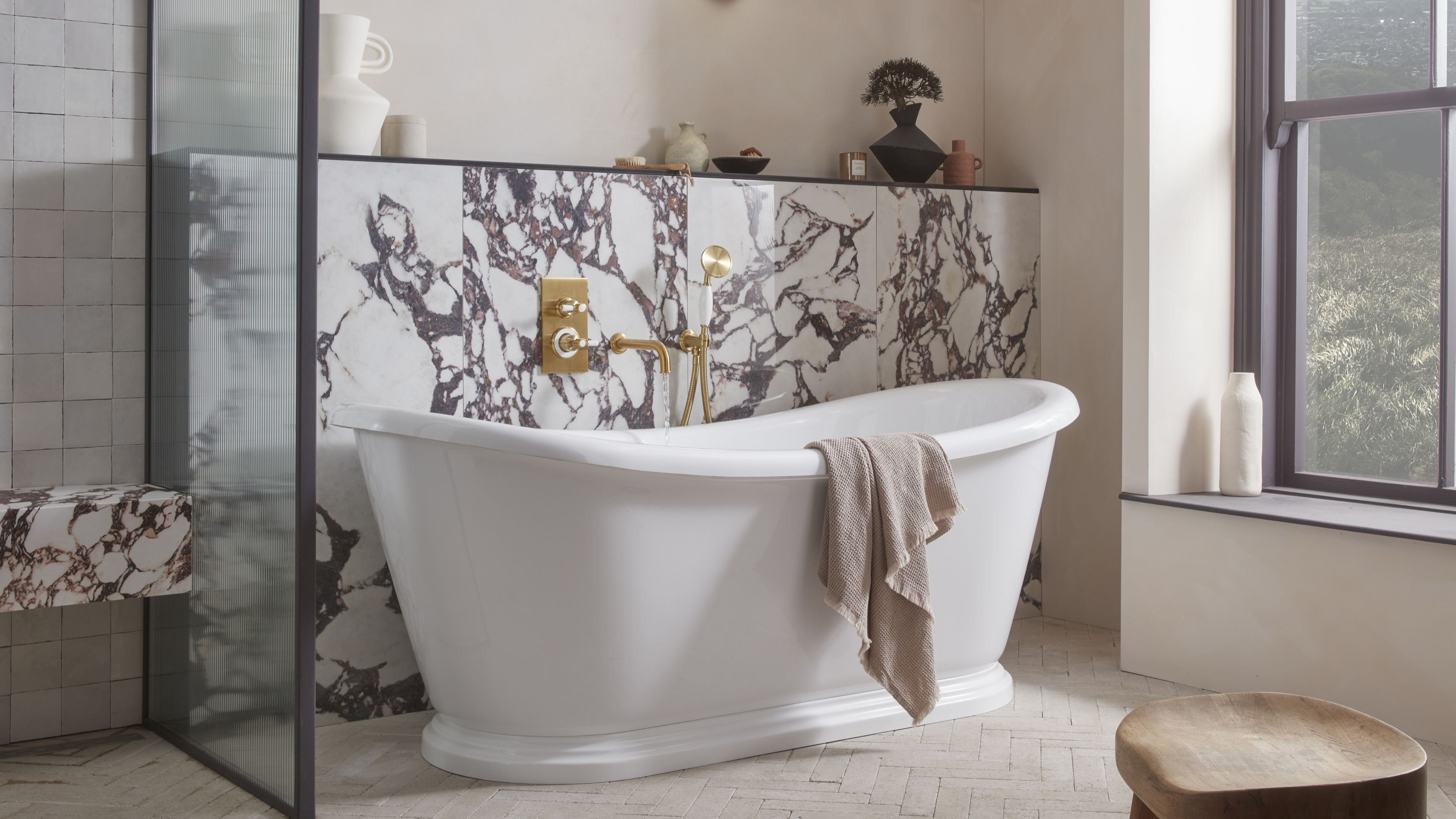 5 Bathroom Layouts That Look Dated in 2025 — Plus the Alternatives Designers Use Instead for a More Contemporary Space
5 Bathroom Layouts That Look Dated in 2025 — Plus the Alternatives Designers Use Instead for a More Contemporary SpaceFor a bathroom that feels in line with the times, avoid these layouts and be more intentional with the placement and positioning of your features and fixtures
By Lilith Hudson Published
